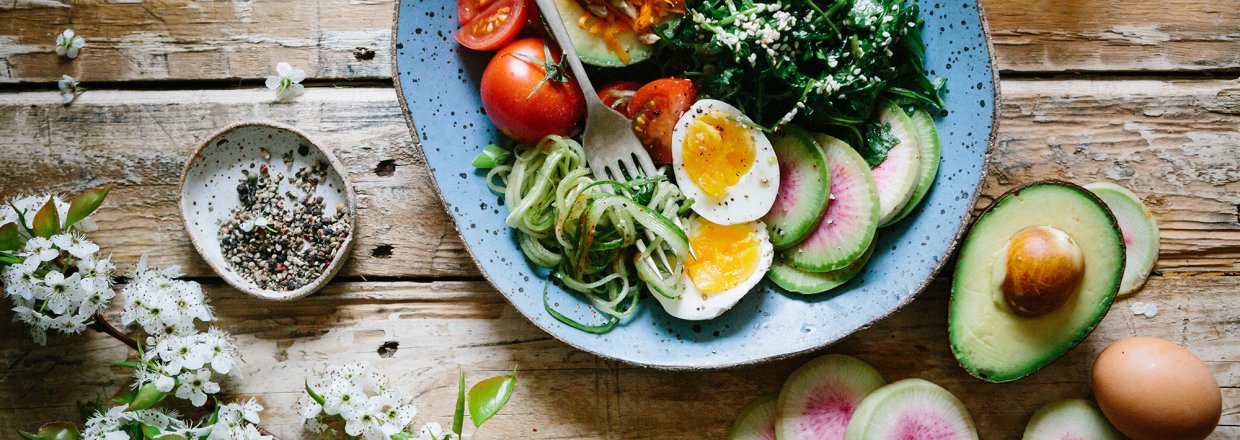This is because your body and mind need the right nutrients to function properly.
If you are overweight or underweight, you will find it harder to move forward from injuries and health complaints. You can find out if you are a healthy weight by using this Body Mass Index (BMI) calculator as a guide.
Even if you are within your healthy BMI range, it’s still important that you get the nutrients you need and eat well.
This doesn’t have to mean drastic diets. There are simple changes that can make a big difference to your long term health and happiness.
Match your diet to your activity levels
The NHS recommends that women consume 2,000 calories a day and men 2,500 a day to maintain a healthy weight.
This is a useful guide, but it’s important to remember is that this is based on the average individual and someone who is moderately active.
If you exercise a lot or have a job that involves physical activity then you will need more fuel for your body. Equally, if you lead a very sedentary lifestyle then you may need to be mindful of your portion sizes and moving more.
Drink enough water
When you become dehydrated your body cannot perform to the best of its ability.
You need water to regulate your temperate and to provide fluid to your cells, tissues and muscles. You also lose water throughout the day and particularly when exercising, so it’s important that you drink 6-8 glasses daily to stay hydrated.
If you don’t drink enough you may experience fatigue, muscle cramps and struggle to move around or perform to the best of your ability.
Eat your breakfast
Eating breakfast provides your body with the energy that you need throughout the day.

Studies have linked eating breakfast to an overall improvement in health, mood and energy. It can also reduce the likelihood of you making poor food choices later on in the day and overeating in the evenings.
If you’re not a big breakfast eater, start with something simple and healthy like a banana with some wholegrain toast.
Don’t forget your fruit and veg
You should eat at least five portions of fruit and vegetables a day to provide your body with essential vitamins and minerals.
Simple changes like adding fruit to your morning cereal and bulking out foods that you would usually make with extra vegetables can help you to reach this goal. For example, try adding more beans and leafy greens to the next curry or stew that you make.

Eat the right starchy foods
Starchy foods or ‘carbs’ should make up just over a third of what you eat and are an important part of a healthy diet.
This includes things like potatoes, rice, pasta and bread. These foods provide our bodies with fuel and are our main source of carbohydrates, so they are especially important if you play sports or train a lot.
Avoid eating too many starchy foods that have been fried or overly processed. Opt for healthier options such as wholegrain varieties and potatoes with the skin on, as these choices offer more nutritional value and fibre.
Get the protein your body needs
Beans, pulses, fish, eggs and meat are all good sources of protein which is an essential part of a healthy balanced diet.
Protein is the main building block for our bodies. It makes up our bones, cartilage, muscles, skin, blood, nails, hair and more. It also helps our body to grow and repair itself.
Opt for lean unprocessed meats and incorporate fish into your diet where you can.

Avoid consuming too much saturated fat
Regularly consuming food with high levels of saturated fat can lead to problems with cholesterol and increases your risk of other health problems.
Saturated fats are found in many foods, such as: cheese, cakes, pies, sausages and butter. Simple changes like trying to cook with less oil and cutting back on takeaways can reduce your consumption.
The average man should have no more than 30g of saturated fat a day and women should have no more than 20g.
Cut back on sugar
Sugary food and drink is high in energy and low in nutritional value.
Cutting back on sugary choices like cakes, biscuits and fizzy drinks will help you to reduce your sugar intake.
You should also be mindful of ‘hidden sugars’ in packaged and processed foods, for example cereals and sauces. Most food nutrition labels will show you if the product is high or low in sugar.
*If you are experiencing any significant changes in weight gain, loss or bowel function please consult your doctor straight away.
